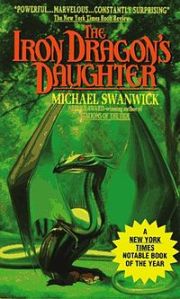
Some while ago, Carrie over at The Mad Reviewer nominated me for a Liebster blog award. The purpose of the award is to draw attention to up-and-coming bloggers who have less than 200 followers. Thanks, Carrie!
Here’s how the award works:
I have to post eleven facts about myself.
I have to answer the eleven questions posed to me by the blogger who nominated me.
I have to ask eleven questions.
I then have to nominate eleven other blogs under 200 followers to receive the award.
Eleven facts about myself:
- I am an adult and I am still afraid of zombies in books and movies.
- I find the entire premise behind the Warm Bodies movie to be deeply disturbing. See above.
- I like to stick brownies into the freezer for a few hours and then eat them cold.
- I have grapheme-to-color synesthesia, which means that I always see certain colors when I see different letters of the alphabet and numbers. The letter A is always school bus yellow, for example. It’s a part of its A-ness. The number 3 is always green.
- I spend more time looking at cats with captions than I really should.
- I’m a very neat and tidy person. Everything in my apartment has a place where it’s supposed to be.
- I once tried to teach myself Esperanto. Nowadays, all I remember is that “pordo” means “door.”
- I’m exceptionally bad at going down stairs. Up is fine, though.
- I got to pet a sea hare once. It was awesome.
- I dream of living long enough to see humans discover evidence of life on another planet.
- My favorite movie of all time is WALL-E. My favorite movie robot of all time, though, is Bishop.
Answers to Carrie’s questions:
1. Which post do you feel is your best blog post and why?
“Tongue-Rolling: Lies, I Tell You!” Because it’s an interesting fact that tongue-rolling may not be as genetic as we learned in high school biology class, and because it was fun to take that photo.
2. What made you start blogging?
Purely selfish reasons. I started blogging to promote an early work I’d just put up on Podiobooks. Then, blogging started to be fun and I started getting into it. That book is still mouldering there somewhere inside Podiobooks, but the blog took off.
3. Skittles: Do you eat the red ones last?
What? Is this something that people do?
4. What’s your biggest pet peeve?
Sweetened yogurt. I don’t like the taste, but that’s neither here nor there, it’s just a personal preference. What really bugs me is that sweetened yogurt gets marketed as a health food. Nonfat sweetened yogurt has more calories in it than plain yogurt with fat in it. It’s predatory to sell people a dessert like that.
5. What do you love the most about blogging and why?
Interacting with readers. Writing is a lonely profession, and sometimes you wonder whether you’re sending all your words out into a black, shapeless Internet void. But the interactivity of blogging has been a way to make a lot of new Internet friends.
6. If you had to pick one book that defined your childhood, which one would it be and why?
The Golden Compass and its sequels by Philip Pullman. I read them just as the last book was being published, at the impressionable age of 12. Wow. If you want to talk about an ambitious literary project, the scope of these books is not just the entire universe, it’s the entire multiverse, and God himself makes a cameo appearance.
It terrified me then, and still terrifies me now, that there might be a way that somebody could take your soul away from you. We live in Will’s world, where souls are invisible, so would you know it when it happened? Would you feel it? Would you become like the zombie nurse at Bolvangar?
7. Coca-Cola or Pepsi?
I don’t drink soda pop.
8. What’s your favourite song and why?
Oh, gosh, that’s a tough question. I like a lot of different genres, and what kind of music I want to listen to at any particular time really depends on my mood. So I’ll give you a song that I really, really love. It’s “Ghost Love Score” by Nightwish. The song is an epic that clocks in at over ten minutes. Imagine if Wagner had been born in the modern day and he’d had access to electric guitars. Yeah.
9. What’s your current favourite TV series?
Game of Thrones, but that should come with the caveat that it’s also the only TV series that I’m watching right now. The show is kindof sortof a book, right?
10. What do you think of blog awards? (Like ‘em or loathe ‘em?)
I’ve never tried them before, but this seems like fun.
11. Does bad grammar bother you?
It depends on the situation. If somebody is e-mailing me to ask a question, especially if I know that writing isn’t their thing, I’ll ignore it. But if I am reading a story and I find a grammatical error, that’s it. I’ll stop reading. If you as a writer are serious about the craft, you should take the time to have somebody proofread your story for you.
Eleven questions for the next blogger:
- Can you roll your tongue?
- Is there anything that scared you as a kid that people wouldn’t normally think is scary?
- Have you ever dyed your hair a different color? If so, how did it go?
- What’s the airspeed velocity of an African swallow?
- Are you an early bird or a night owl?
- What’s your favorite robot in fiction? Or do you just not like ’em at all?
- What was your favorite class in high school and why?
- Do you remember before the Internet?
- What do you least like about the place where you live?
- What was the best pet you ever had in your lifetime?
- Do you like to eat anything weird?
Eleven blogs that I nominate:
Plants Are the Strangest People
The Illustration a Day Blog (I know Kaufenberg is over the limit on followers, but it’s a really good blog.)
Turtle and Robot
The Chocolate Peanut Butter Gallery
A Solo Singer in America
Still Curious After All These Years
Gman’s Galaxy
Frugal Feeding
Dreampunk Geek
Seth Snap Photography
The Baking Bird
 I’d read some reviews of The Iron Dragon’s Daughter on Goodreads, so I was forewarned that the author pulls a nasty trick on us around page 80. That still didn’t prepare me for how angry this book was going to make me.
I’d read some reviews of The Iron Dragon’s Daughter on Goodreads, so I was forewarned that the author pulls a nasty trick on us around page 80. That still didn’t prepare me for how angry this book was going to make me.












